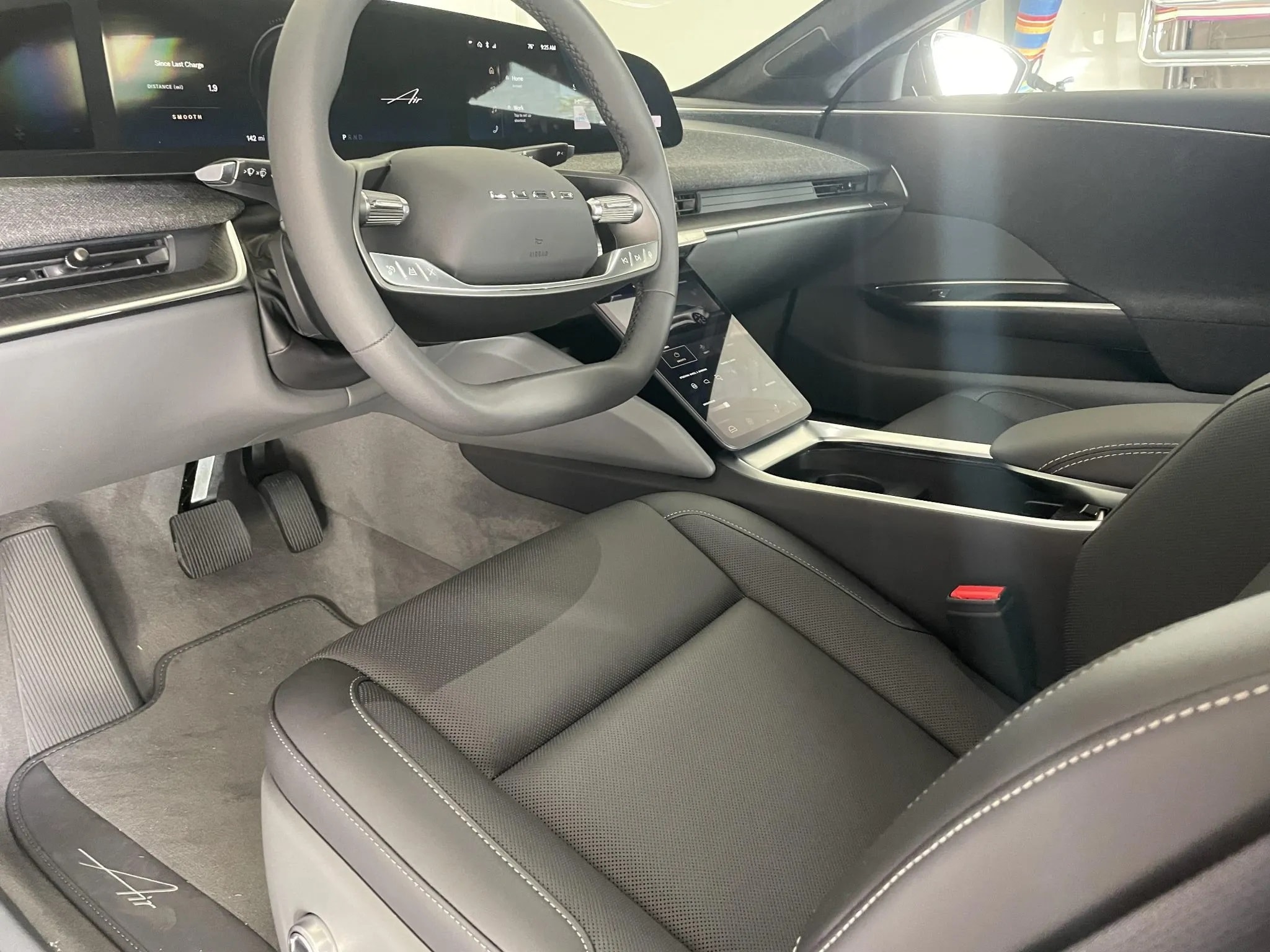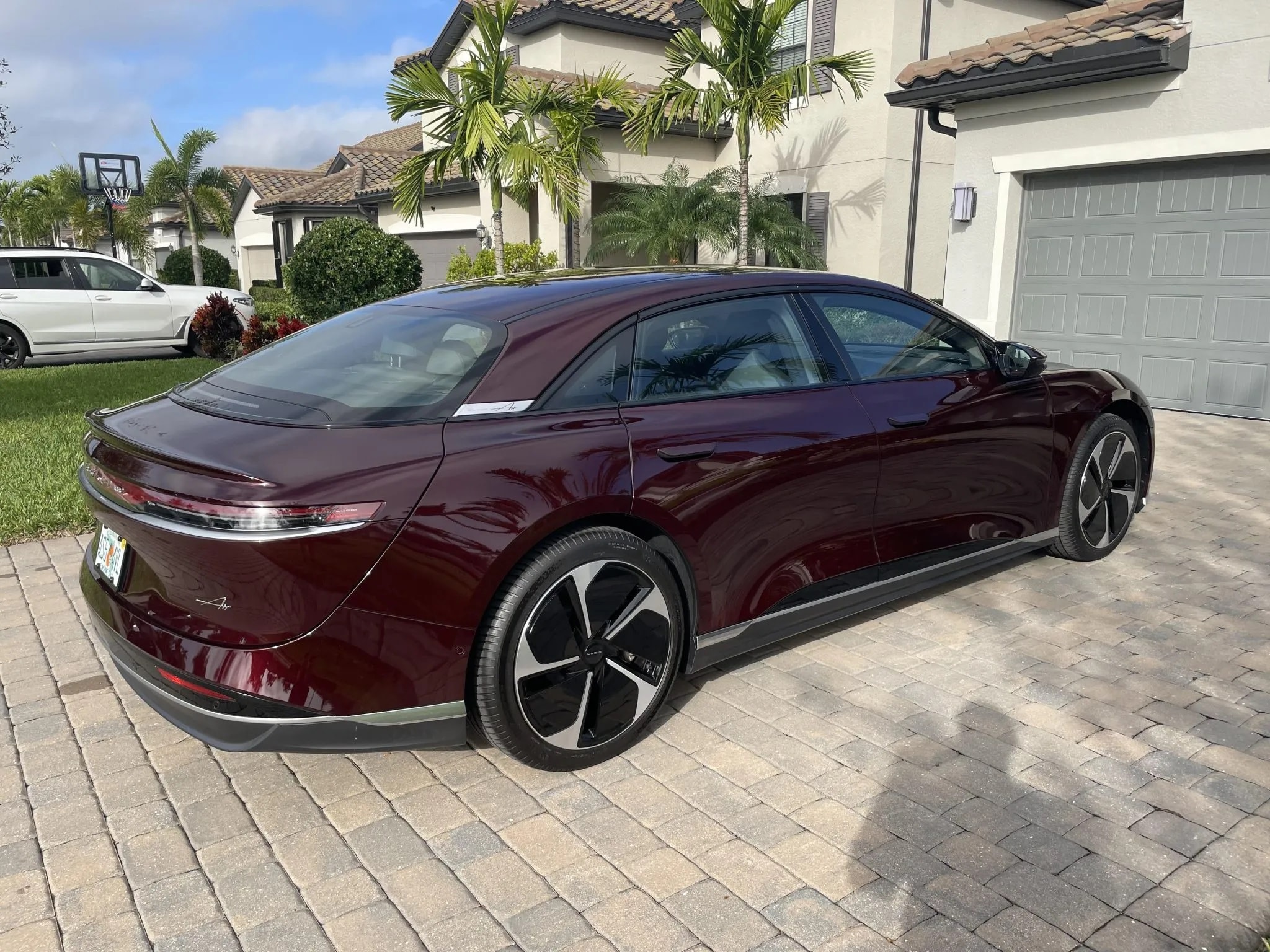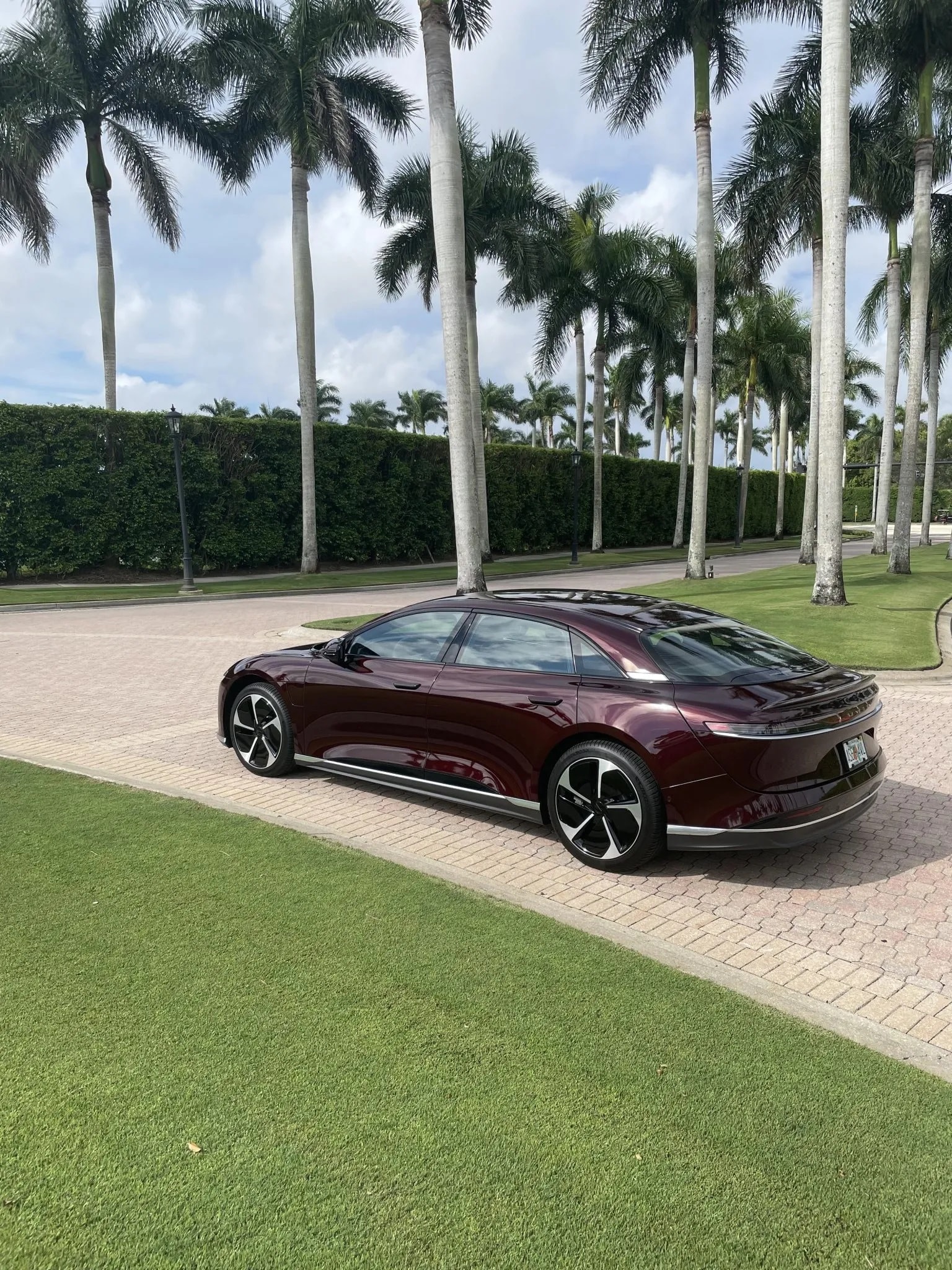The Lucid Air Pure, a once-coveted electric sedan, has experienced a significant decline in value. Despite its impressive range, luxurious interior, and advanced technology, the dual-motor all-wheel-drive model has recently been sold on Bring a Trailer for a substantial discount.
The vehicle, which originally sold for over $100,000, was purchased for just $56,00 a 45.2% decrease in value. This substantial drop raises questions about the long-term resale value of electric vehicles, particularly high-end models.
Several factors may contribute to this decline. First, the rapid evolution of electric vehicle technology can quickly render older models less desirable. Newer vehicles often offer improved range, faster charging times, enhanced features, and more advanced driver-assistance systems, making them more attractive to buyers.

For example, newer models may have more efficient battery packs, resulting in longer driving ranges on a single charge. Additionally, advancements in charging technology can reduce charging times, making electric vehicles more convenient for daily use. Second, the increasing competition in the electric vehicle market has led to a wider range of options at various price points.
This increased competition can put downward pressure on the resale value of existing models. As more manufacturers introduce new electric vehicles, consumers have more choices available to them. This can lead to a decrease in demand for older models, which can, in turn, affect their resale value.
Third, the economic climate can influence the resale value of electric vehicles. Economic downturns or uncertainty can lead to decreased demand for luxury goods, including high-end electric cars. As a result, the resale value of these vehicles may decline during such periods. For example, during economic downturns, consumers may prioritize affordability over luxury features, leading to a decrease in demand for high-priced electric vehicles.
Fourth, the availability of government incentives and tax credits can also impact the resale value of electric vehicles. In some regions, governments offer incentives or tax credits to encourage the adoption of electric vehicles. These incentives can make electric vehicles more affordable for consumers, but they can also have an impact on their resale value.

If a government incentive or tax credit is discontinued, the resale value of electric vehicles may decline, as buyers may be less willing to pay a premium for a vehicle that no longer qualifies for these benefits. Finally, the perception of electric vehicles among consumers can also influence their resale value. As electric vehicle technology continues to evolve, consumer perceptions of electric vehicles may also change.
If consumers become more confident in the reliability, affordability, and practicality of electric vehicles, their resale values may increase. Conversely, if consumers remain skeptical about electric vehicles or have concerns about factors such as range anxiety or charging infrastructure, their resale values may decline.
While the Lucid Air Pure may have once been a highly sought-after electric sedan, its recent sale at a significant discount highlights the challenges associated with maintaining a high resale value in the rapidly evolving electric vehicle market. As the industry continues to mature and competition intensifies, it remains to be seen how the resale values of electric vehicles will develop.

